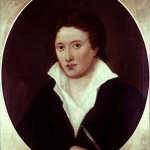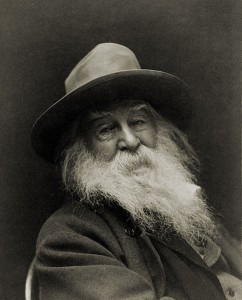A Look at Poets and Poetry of the 1800s from 1888
by William Davenport Adams
The succession of the Hon. J. Leicester Warren to the barony of De Tabley was something more than a change in the personnel of the House of Lords; it amounted to a conspicuous addition to the Chamber’s intellectual power, and especially to the number of its poetic votaries. The author of ‘Philoctetes’ and ‘Orestes,’ of ‘Rehearsals’ and ‘Searching the Net,’ is no mere versifier. He has felt the influence of the old Greek dramatists, and apparently also that of Mr. Swinburne; but, for all that, his work has undoubted individuality, as well as solid interest.
It must be admitted that the House of Lords does not at this moment contain many hereditary peers who are also poets. Lord Tennyson, of course, is an ennobled commoner, and the Bishop of Derry (Dr. Alexander), who has written so much excellent verse, both in the thoughtful and in the imaginative vein, is no longer one of the spiritual lords. But there is Lord Lytton, there is Lord Southesk, and there is Lord Rosslyn; and by all of these Lord de Tabley will be welcomed as a brother in the literary art. What Lord Lytton has done in poetry, need scarcely be recapitulated. He would be remembered as ‘Owen Meredith’ if, since his accession to the peerage, he had not made a new reputation as the author of ‘Fables in Song,’ ‘Glenaveril,’ and other performances. As ‘Owen Meredith’ he was, no doubt, more fresh and spontaneous than he has ever been as Lord Lytton; but his poetic work, as a whole, is of good quality, and some of it will find its way down the stream of time. Equally certain may we be that the ‘Jonas Fisher’ of Lord Southesk, with its unquestionable vigour, both of satire and of sentiment, will remain alive, whatever may be the fate of the author’s ‘Greenwood’s Farewell’ and ‘Meda Maiden.’ Lord Rosslyn, it will be remembered, was one of the most successful of the Jubilee Laureates; but, even before that, he had made himself esteemed by many trustworthy judges as the producer of numerous good sonnets.
‘’Tis ridiculous,’ says Selden, ‘for a lord to print verses; ’tis well enough to make them to please himself, but to make them public is foolish.’ He goes on to add that
‘If a man in his private chamber twists his band-strings, or plays with a rush to please himself, ’tis well enough; but if he should go into Fleet Street, and sit upon a stall, and twist a band-string, or play with a rush, then all the boys in the street would laugh at him.’
No doubt they would have done so in Selden’s time; and much more readily would they do so now. But that is scarcely to the point. Pace Master Selden, there is nothing ridiculous in a lord printing his verses—if they be but good enough for the process. A peer is not necessarily a poet, but a poet is none the worse for being a peer. Nay, there are even certain kinds of verse in which a peer may, other things being equal, be actually expected to excel. There is nothing to prevent his being—as Byron was—a poet of passion; there is every reason why, if he have the requisite literary capacity, he should shine in the poetry of the library, the salon, and the boudoir. He has usually the education for the first, and the leisure for the other two. He generally has culture, he always has breeding, he often has gallantry; and, with these endowments, the poetry par excellence of the peerage is well within his reach.
Considerable, indeed, would be the loss to English literature if by any chance the productions of our noble poets should disappear. Apart from Byron, who, of course, stands a head and shoulders above all his brethren, there is that Henry, Earl of Surrey, who ranks highest of all poets between Chaucer and Spenser, and who did so much to popularize in England both blank verse and the sonnet. But for Surrey both those accomplishments, since so popular among us, might have been long in establishing themselves in English poetry. The other poet-peers of the sixteenth century were admittedly not of the first class. Yet Buckhurst’s share in ‘The Mirror for Magistrates’ and in the tragedy of ‘Gorboduc’ was of undoubted value, both intrinsic and relative; and the world of letters would not willingly let die the work, slight as it was, of Lord Vaux, the Earls of Essex and Oxford, the Earls of Ancrum and Stirling, Lord Brooke, and Francis Bacon, although the great Chancellor wrote but one lyric of any moment—the well-known lines upon ‘The World.’ Lord Vaux’s ‘Of a Contented Mind,’ Lord Essex’s ‘There is None, O None but You,’ Lord Oxford’s ‘If Woman could be Fair and yet not Fond,’ are among the treasures of our verse; while the tragedies of Lord Stirling and Lord Brooke, and the sonnets of Lord Ancrum, are at least curious and interesting, if they are not substantively great.
And when we come to the noble poets of the Stuart and the early Georgian period, we find that the national indebtedness is not less marked. Who would be prepared to surrender the spirited effusions of Montrose? And is there not much to be said for the outcome, flimsy and over-free as it often was, of that mob of noblemen who wrote with ease—including the Earls of Roscommon, Dorset, and Rochester, and the Duke of Buckinghamshire? Had these writers not at least the virtues of lightness and of brightness? Did not Dorset pen the lines, ‘To all you ladies now on land?’ Did not Buckinghamshire produce ‘The Election of the Laureat’—the prototype of Leigh Hunt’s ‘Feast of the Poets,’ and of a still more recent jeu d’esprit by Mr. Robert Buchanan? The great Lord Peterborough is even now less remembered for his military triumphs than for his ‘Song by a Person of Quality;’ while Chesterfield, if thought of most frequently in connection with his letters and his essays, still lives in poetry as the author of some admirable society verses. Horace Walpole claims mention in the list as Earl of Orford, and room must fairly be made, too, for Lords Lansdowne, Halifax, Nugent, Lyttelton, Egremont, and De la Warre, most of whom left behind them a few fugitive pieces which deserve to be embalmed in poetical collections.
The annals of nineteenth-century song will commemorate, besides Byron, those agreeable versifiers—Lord Holland, Lord Melbourne, and Lord Winchilsea, and those cultured translators—Lord Strangford, Lord Ellesmere, and Lord Derby. It would scarcely be fair to include among noble poets Lord Macaulay, Lord Houghton, or the first Lord Lytton, for they, like Lord Tennyson, were created peers, and won their laurel-wreaths in the character of commoners. In the same way, I have taken no account of the poetical peeresses, or I should have had to dwell upon the achievements of such ladies as Sidney’s sister, Lady Pembroke; the Duchess of Newcastle, the Countess of Winchilsea, the Baroness Nairne, and so on. Enough, indeed, has been said to show how prominent a part the peerage has played in the history of English poetry—not, indeed, in the front rank, in which (omitting Lord Tennyson) it is represented only by Byron, but in the second, where Montrose (for example) is eminent, and wherever, in short, the rhetorical, the amatory, and the witty elements are in the ascendant.
- 100 Screenwriting Ideas to Get You Writing - January 20, 2026
- 100 Winter Storm Writing Prompts - January 17, 2026
- 100 Haunted House Story Starters: Craft Your Scariest Tale Yet - January 10, 2026




